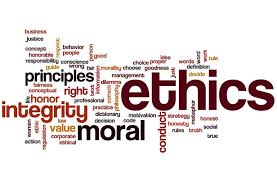Bringing the Board to the Ethical Culture Table (Part II of III)

I guarantee you if you ask your corporate board to define “ethical culture” and “compliance,” and their actual day-to-day responsibilities in this area, you will quickly realize most board members have no clue. This is not a controversial statement because corporate board members, for the most part, are clinging to old ways when it comes to board responsibilities – focus on the financials, monitor your CEO, and pray that nothing goes wrong within the company.
One other thing I can guarantee you – this mindset will eventually change. As a new set of corporate leaders take the reins reflecting a new generation of attitudes, we will see a broader viewpoint take hold.
The next generation of business leaders will reflect social concerns and quickly embrace a fundamental connection between financial performance and employee commitment built on defining a mission, providing everyone with a unified goal. Each employee (whether explicit or implicit) needs to define his or her own mission in life – it gives each of us a purpose, a reason to live and work. Employees are demanding more of their corporate employers – that a company commits to providing a safe and secure workplace, real economic opportunities for improvement, and a unified commitment to promoting stakeholder interests built on long-term sustainable growth. Of course, financial profitability is an important aspect of this equation but employees are demanding greater social consciousness.

Corporate leaders have to embrace, with even greater commitment, the importance of an ethical culture. At the forefront of this effort has to be the company’s board and its senior leadership team. If there is any weakness or faltering at this level, it will quickly become apparent as corporate misconduct and quixotic financial performance will occur.
With this background, chief ethics and compliance officer have to step up and bring the issues to the board and counsel them on how to enhance the company’s culture and conduct appropriate oversight and monitoring of the company’s culture.
Corporate culture can be defined in a variety of ways – but I like to focus on expectations for how employees conduct themselves, by their actions each and every day, by the issues that the board, senior management, managers and employees emphasize or overlook, and ultimately by how companies create and protect their values.
It has been estimated that one-half of a company’s value is its intangible assets – its culture and reputation. Assuming this estimate is accurate, corporate boards need to prioritize management and oversight of these assets.

A fundamental aspect of this responsibility requires corporate boards to define the company’s culture, measure, monitor, intervene and remediate when necessary. In the same way that corporate boards adopt financial strategies designed to maximize revenues and minimize costs, companies have to employ a similar mindset to management of the company’s culture. A financial strategy without consideration of corporate culture often results in less than optimal performance.
The board has a fundamental duty to oversee corporate culture, to exercise its authority when needed, and to ensure that appropriate monitoring controls are in place. A company that appropriately defines its corporate culture, aligns the culture to its overall purpose and strategic initiatives, and monitors its culture, is in a position to increase its value through maximizing its talent pool and its intangible assets.
















1 Response
[…] Roundtable Statement on the Purpose of a Corporation on Corruption Crime and Compliance. Part 1, Part 2& Part […]